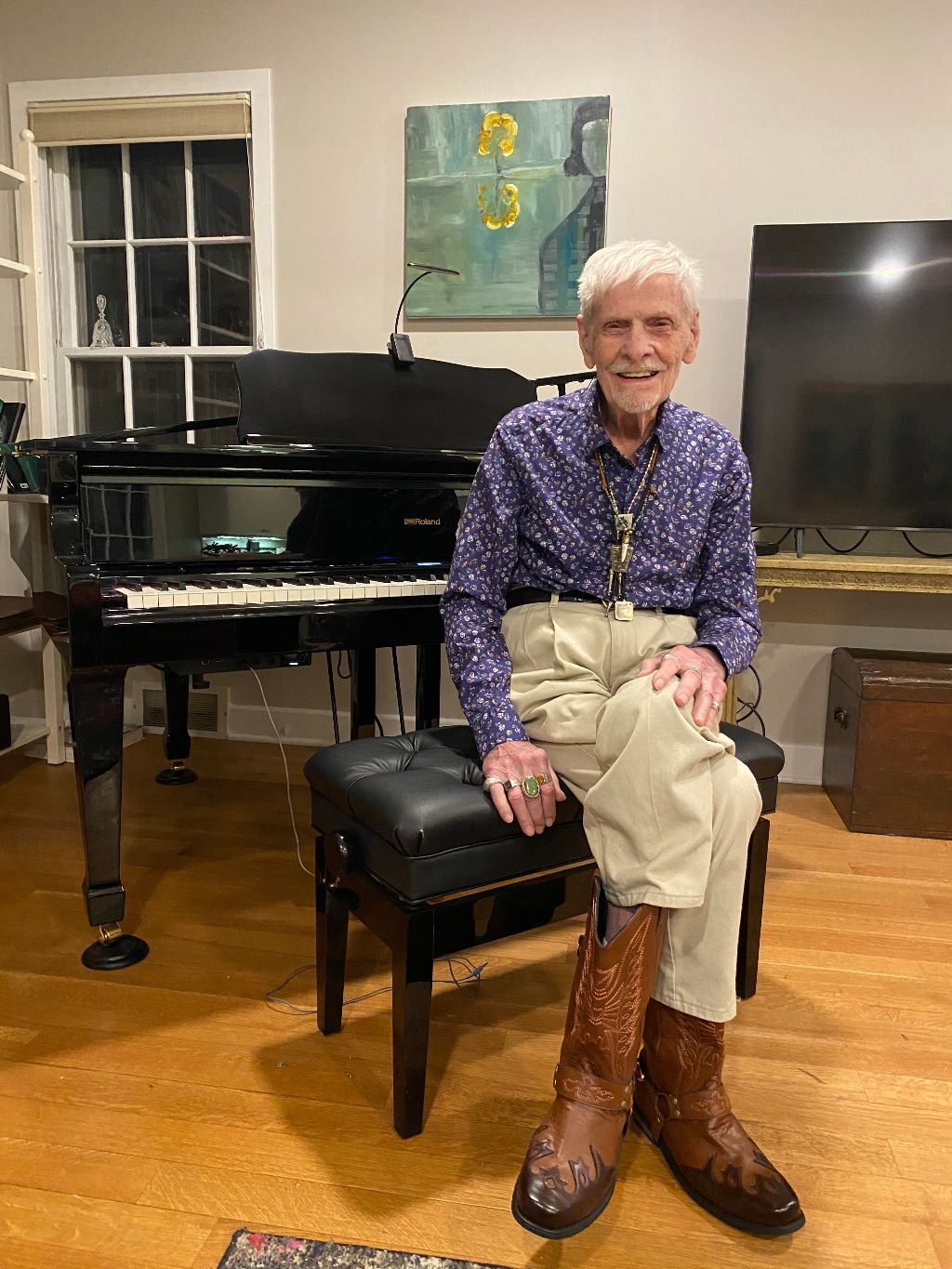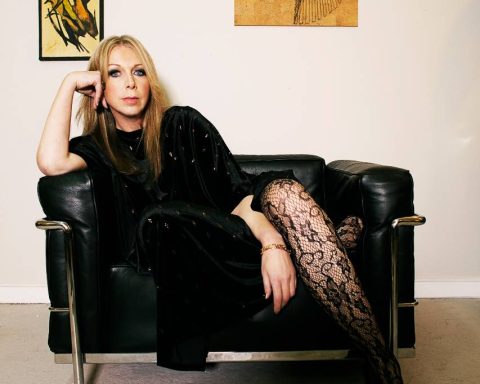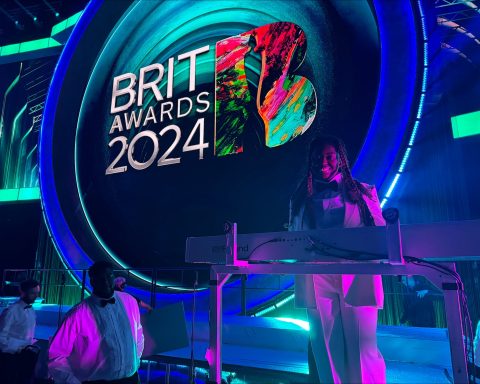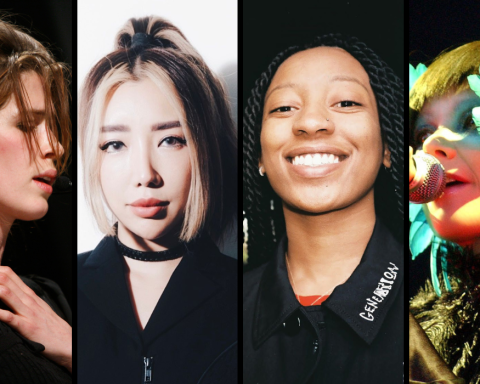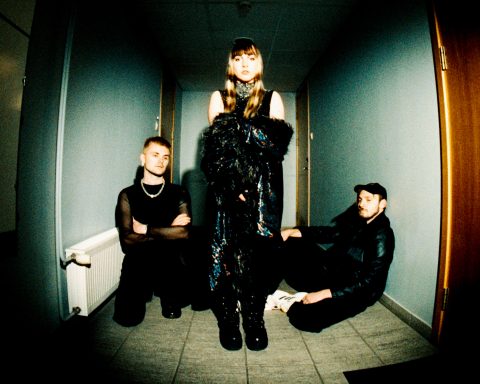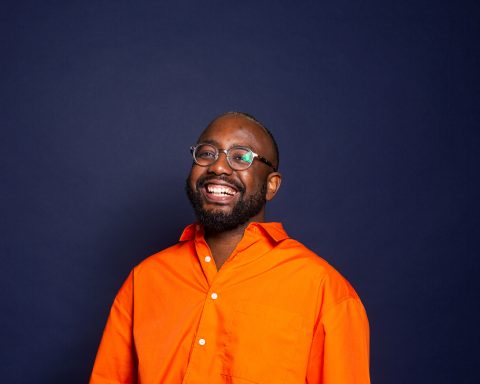Music keeps us young and brings families together. Rarely is that more evident than with 97-year-old Frank McNulty and his daughter Jules. Frank’s career includes 55 years at ABC-TV in Chicago, with a lengthy stint as Music Director for The Oprah Winfrey Show. In addition to small-screen success, Frank earned a Gold record for “Bye Bye Baby Goodbye.” Frank and Jules McNulty took time to speak about their influences, upbringing, and Roland keyboards.
Beginnings
When did you begin playing piano and who were your first influences?
Believe it or not, the guitar was my first instrument. I was seven, and it was 1930. My buddy and I started singing duets and playing together. We became so popular our teachers would call us up to sing for the class. One Sunday, we gathered around the radio for a show called Major Bo’s Original Amateur Hour. They announced that auditions 50 miles away in Fargo, North Dakota.
We auditioned for the show. After the program, Major Bo made an announcement. He said, “Ladies and gentlemen, first honorable mention goes to two little boys from Park Rapids, Minnesota, Franky McNulty and Richard Steel, for their song ‘Out In This Cold World Alone’.”
"In 1944, I walked into the lobby of the NBC Blue Network. I knew this was where I wanted to be."
What happened next?
We made our town proud and my love for performing was born. Fast forward two years, my mother heard me play “Twelfth Street Rag” on a neighbor’s piano. They scrimped and saved to buy me a Howard piano, made by Baldwin. This was during the Great Depression.
Soon, I began composing and became skilled at music notation. My earliest influences were George Gershwin, Cole Porter, and Irving Berlin. As far as classical composers, my favorites were Rachmaninoff, Rubenstein, and Ernesto Lecuona. I wrote my first piece at 13, in 1936, called “Dream Fantasy” in three movements.
Television Beckons
Can you give us some highlights from your 55 years at ABC-TV in Chicago?
It was 1944, before the birth of television, when I walked into the lobby of the NBC Blue Network studio at age 21. I knew it was where I wanted to be. They hired me on the spot as a music librarian. Shortly after, NBC split into the Red and Blue Networks. The Blue Network became ABC-TV.
At 22, I became the Band Remote Manager for the Blue Network. Big bands were the rage. I scheduled Tommy Dorsey, Harry James, and Benny Goodman. We broadcast from the famous Chez Paree, Edgewater Beach Hotel, The Pump Room, the Aragon Ballroom, and Empire Room at the Palmer House. I booked Liberace, Tony Bennett, Dean Martin, and Dina Shore. It was one of the best jobs of my career. Band leaders, hotel managers, and music publishers treated me like a king.
In the ’60s, I was Music Director/Music and Talent Coordinator for the first country music show in a major market. It was called American Swingaround and was a huge hit, running for several years. I worked with Johnny Cash, Dolly Parton, and Merle Haggard. Fast forward 20 years, I became Music Director for The Oprah Winfrey Show when production was at WLS-TV in Chicago. I retired from ABC in 1999 at the age of 76.
A Dramatic Turn
Tell us about writing for the theater.
Besides my ABC job, I wrote and recorded in my basement studio for commercials and musicals. My first full-length stage production was Jody Boy. During that period, I also wrote the music for The Flight Brothers, a musical that had its premiere at East Carolina University. The show was eventually produced for the the Public Broadcasting Service.
Life-changing Success
What’s the story of your classic, “Bye Bye Baby Goodbye”?
The most exciting and important thing that happened in my musical career was the success of “Bye Bye Baby Goodbye,” written in 1959. It paved the way for other big hits, including “Gonna Leave Tomorrow,” “Moonlit Night,” and “To Be With You.”
“Bye Bye Baby Goodbye” was first recorded by Sonny Williams in Nashville with Chet Atkins and Floyd Crammer. The song was a hit on the national Billboard charts. It was also recorded by Theresa Brewer and became a smash.
"I received an invitation to Australia to appear on This Is Your Life. They gave me a Gold record for "Bye Bye Baby Goodbye."
The song traveled far beyond the US, correct?
It was picked up by Australian artist, Col Joye, and in two weeks became a #1 hit on the Australian charts. “Bye Bye Baby Goodbye” made Col Joye a household name in Australia. Mothers sang it to their babies as a lullaby. Col still performs the tune live.
The song was recorded in foreign languages in at least 20 countries and went to #1 in many of them. It continues to receive performance and mechanical royalties. In the ’70s, I received an invitation to appear on This Is Your Life. They awarded me a Gold record for “Bye Bye Baby Goodbye.” This was the greatest highlight of my musical career.
A Family Affair
Your daughter Jules is a musician. Was it important to pass music onto your children?
It’s gratifying to see I’ve been an example to my kids who have become composers, pianists, singers, producers, and performers. It feels good to know my music will live on through my family and future generations. After 90 years, I continue to write and record songs every day. I won’t stop.
I’d like to take this opportunity to thank my collaborator and muse, the love of my life, Colleen Newell McNulty. She’s played an integral role, from writing lyrics to pushing the record button, singing, and critiquing with an honest ear. I may not say it often, but I tell her I love her in the many love songs I’ve written and continue to write for her.
"After 90 years, I continue to write and record songs every day. I won't stop."
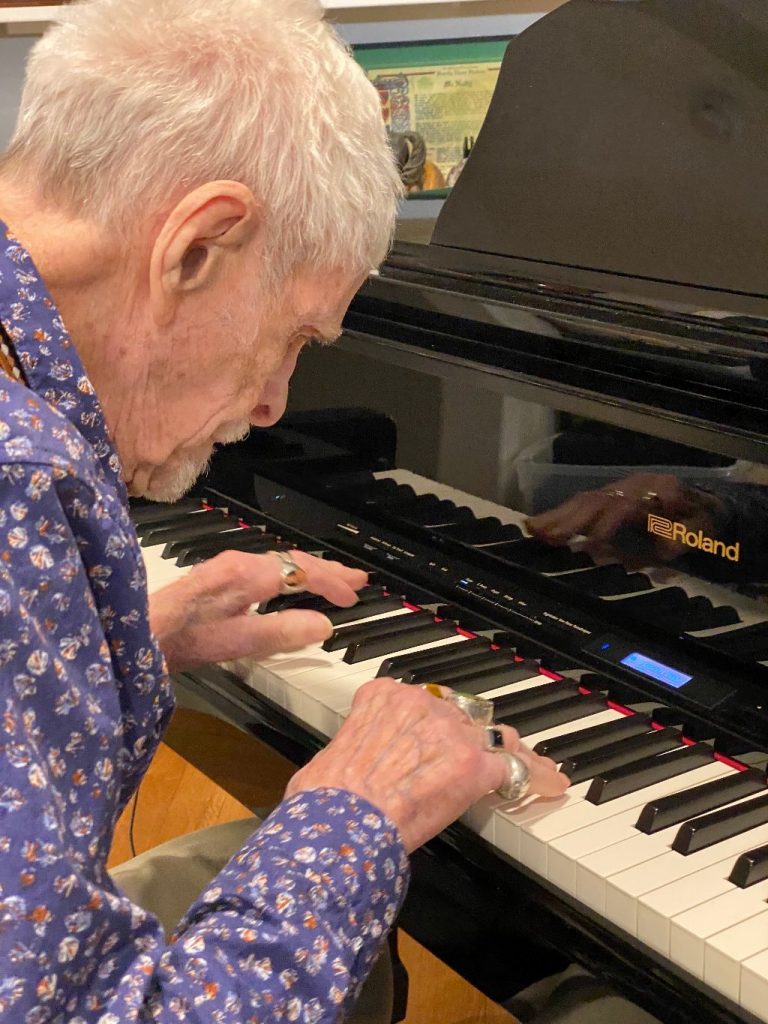
Roland Renaissance
How does the Roland GP609 inspire your compositions?
Throughout my career, I’ve embraced technology. I recently had to downsize my concert grand piano, as my wife and I were moving out of our family home of 62 years. My 21-year-old grandson, Logan, recommended a digital grand piano. He introduced me to the Roland GP609.
Its black ebony finish is stunning and the full range sound takes my breath away. The piano is so perfect and light to the touch I feel like Rubenstein or Rachmaninoff. An idea will come to me in the middle of the night, in a dream state. I immediately go to my Roland piano, put on headphones, press record, and a masterpiece is born—if I do say so myself.
What advice would you give to musicians just starting?
Follow your dream and never give up. I’ve been making music since I was nine years old. Music was not only my passion, it became my livelihood. I raised five kids on music. Practice every day. Listen to other pianists’ interpretations so you can find your own style and form. Be original.
Jules McNulty: From Beethoven to Blulie
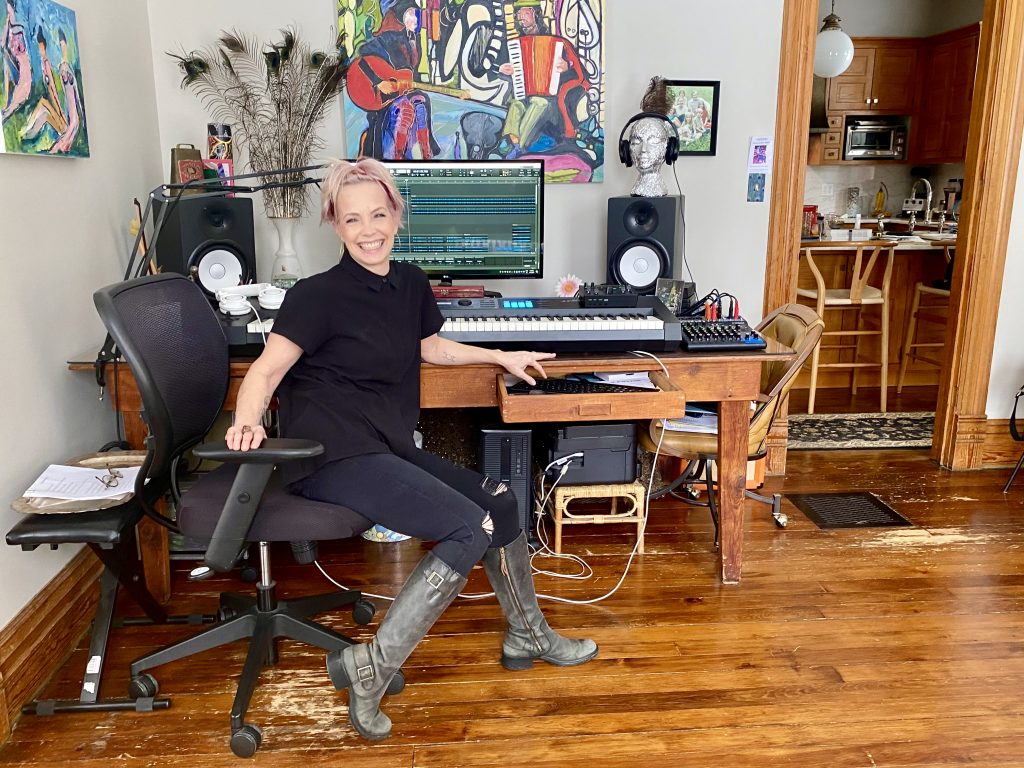
Musical Home
What role did music play in your childhood?
We had constant music in our house. Growing up with a studio at home played a huge part in my life. My dad used to record bands in our basement on weekends. We had a viewing window with stools to watch. The minute one of the guys would finish a beer, we ran upstairs and got them another. That was our way of getting in on the action.
Your father calls your mother his muse. Was that evident to you?
My mom, Colleen, is my dad’s muse and the love of his life. She sang some of my favorite songs he’s written like “But I Love Him” and “Did He Speak My Name.” Her voice was flawless. Not only did she sing, but she also helped him in the studio. Not an easy task with five small children.
Songs that Linger
Do you have any memories attached to particular songs or artists?
I have so many songs ingrained in me from my youth. Some of my favorites were the fast, novelty piano pieces my dad amused us with. He never tired of them because everyone would laugh and dance. Our favorites were “Dizzy Fingers” by Zez Confrey (1923), “Kitten On the Keys” by Zez Confrey (1921), “Nola” by Felix Arndt (1915), and “Boogie Woogie” by Pinetop Smith (1928).
My dad also played beautiful classical pieces and ballads. Some that made an impact were “Moonlight Sonata” by Beethoven, “Clair De Lune” by Debussy, and “Summertime” by Gershwin. My mom’s version of “Summertime” is the most beautiful to me. My parents would have friends over for cocktails. We’d stand on the living room table and sing
for them.
"At a pretty young age, I became interested in the technical side of recording. My dad taught me to edit reel to reel tape."
The Family Business
What was it like having a musician like your father around?
My dad is a musical genius. When we were kids he did his recording and writing at home. He had a studio and control room, with an echo chamber he built for old-fashioned reverb. We’d go in and yell to hear our voices yell back.
We were involved in our dad’s work. I remember singing into a big condenser mic in my pajamas. My sisters and I got into laughing fits which made it take longer to get a good take.
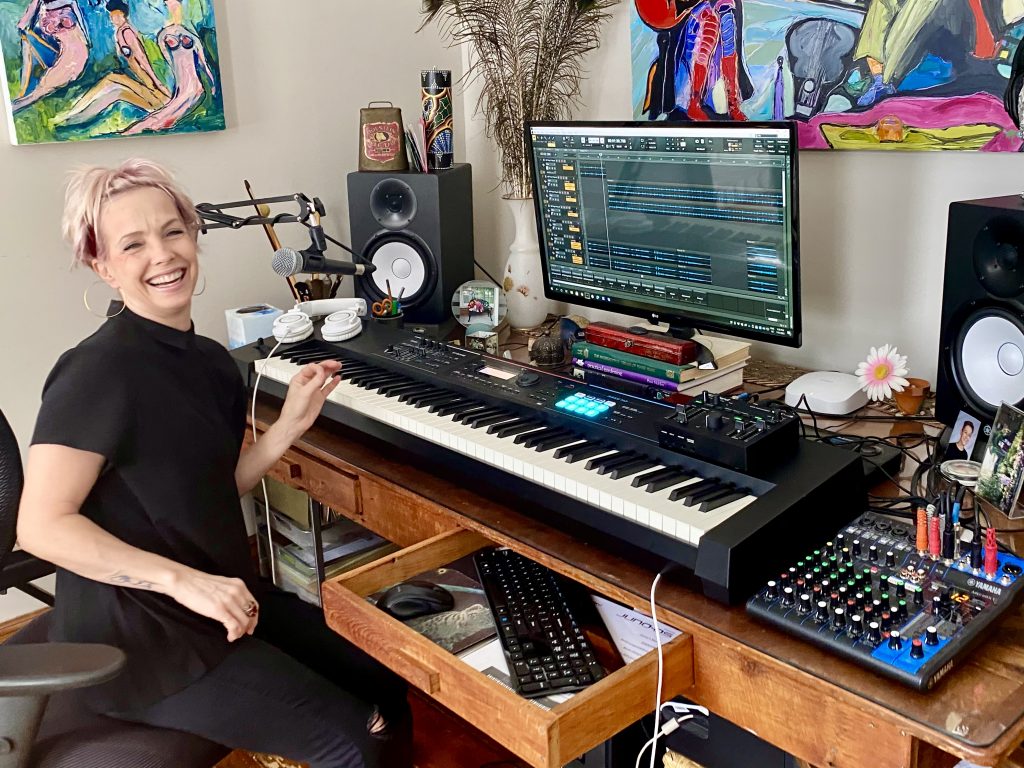
"On days off, we would take trips to the city to ABC. We thought our dad was famous. He was to us."
At a young age, I became interested in the technical side of recording. My dad taught me to edit reel to reel tape. On days off school, we’d take trips to the city to ABC. We’d sit in his chair and marvel at the records and tapes. It was so cool to see the newscasters we watched on TV. They always acknowledged us. We thought our dad was famous. He was to us.
Jules’ Journey
When did you begin playing the piano?
I started playing piano when I was old enough to sit on the bench myself. At eight, my mom heard me playing “Fur Elise.” She immediately signed me up for Suzuki lessons. I was already a rebel and didn’t like the structure. Now, I wish I stuck with it because I can’t read music. That hasn’t stopped me from writing and recording though.
Who are some of your influences?
I’ve been writing music for about 25 years. I have a wide range of influences. The most random would be Ryuichi Sakamoto. My greatest inspiration comes from Radiohead, Depeche Mode, Joy Division, Cocteau Twins, and The Knife. I grew up in the ’80s club scene so punk, new wave, and electronic genres are my musical bent.
Studio Transformation
How does Roland gear inspire you?
When the pandemic hit, it gave me endless time to make music. I craved more synth sounds. My son, Logan, who makes electronic music, found the Roland JUNO DS88 for me. It changed my life and music. I’ve been able to incorporate synth sounds that evoke a big, atmospheric feeling. I took my studio one step further when my kids got me the Roland VT-4. That machine changed my vocals forever.
"Music is always the best medicine. I hope I’ll be making it at 97, just like my dad."
How have the JUNO and the VT-4 influenced your creative process?
My process transformed once I got my JUNO. I sit down, find a sound, lay down a drum track, and start recording and layering. I feel like my options are endless with my setup. I’m about to release an album, Faceplant, as Blulie. I wrote the songs in a time of chaos in my world and injustice in the outside world. Music is always the best medicine. I hope I’ll be making it at 97, just like my dad.
